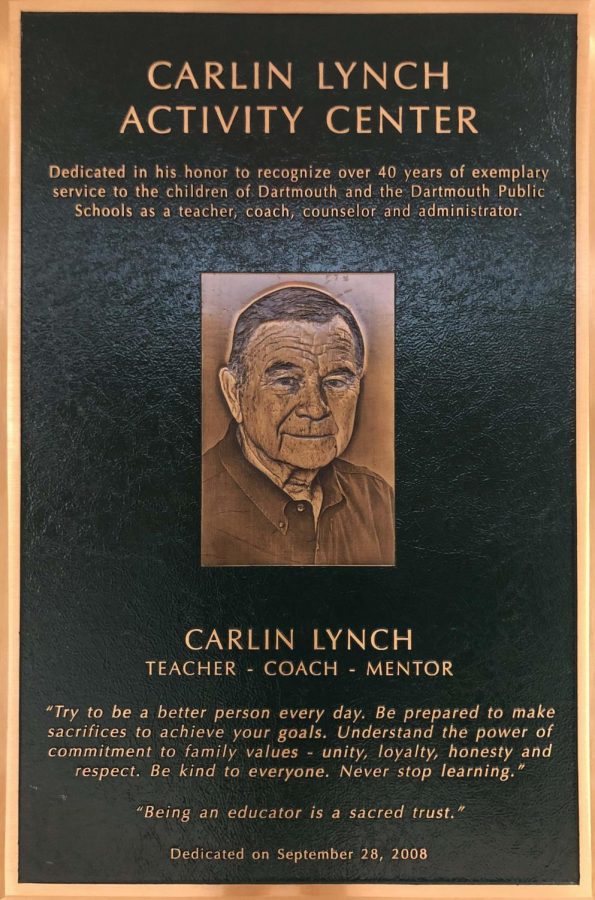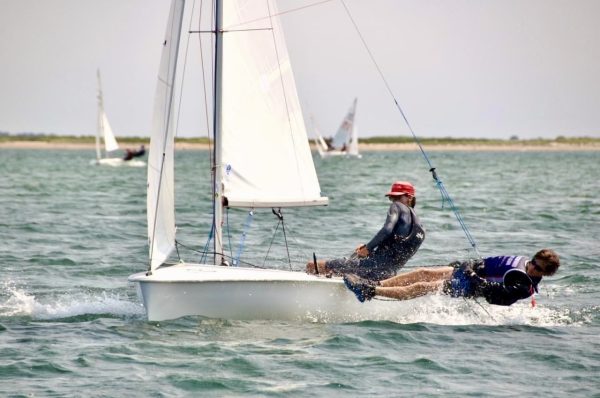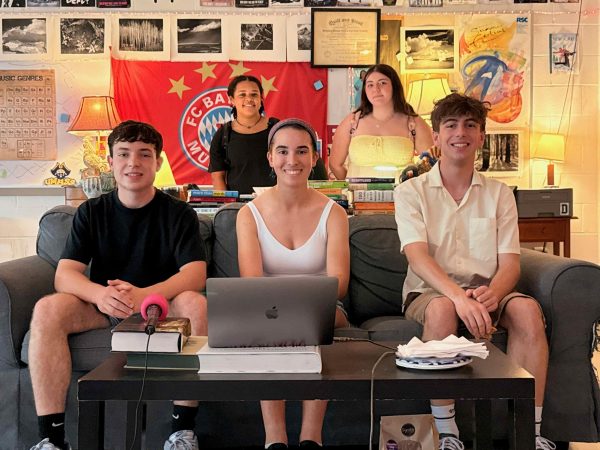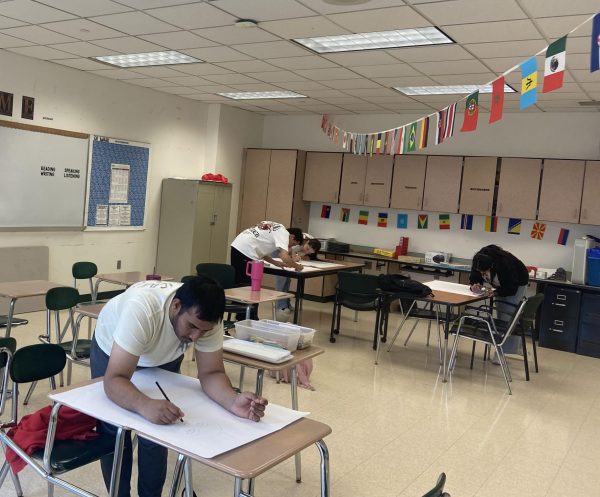DHS teachers remember DHS legend Carlin Lynch
The plaque dedicating the DHS Athletic Center in Carlin Lynch’s name.
On Monday, January 14, Dartmouth coaching legend Carlin Lynch peacefully passed away. He lived a long, full life, but his death still shook many whom he had touched in his capacity as a coach and mentor here at DHS.
English Teacher Wesley Lima remembers him well, as the man who coached him in football but also as a man who coached him throughout his life. He remembers something Mr. Lynch once told him, the first time they met. To set the scene, Mr. Lima (a kid at the time) had a picture of Mr. Lynch in his room- Mr. Lynch was, after all, the football legend, idol of every kid who wanted to play on his team. So when Mr. Lynch got down, smiled, and said to Mr. Lima “You know, you can be a football coach, too,” Mr. Lima was, in his own words, dumbstruck. Mr. Lynch said other things, too, but from that encounter, Mr. Lima remembers more feelings than words, and the feeling he got from Mr. Lynch, of caring and passion, was one that would be reinforced throughout his life.
After a senior season of football that was underwhelming according to their 2-9 record, Mr. Lynch once took Mr. Lima by surprise. Mr. Lynch said to someone “You know, his senior year they went undefeated.” When Mr. Lima attempted to protest, Mr. Lynch showed his angle. “You guys won every game because you never gave up and played hard every play for an entire season, isn’t that correct?” This left Mr. Lima speechless. Coming from someone else it might have felt like a tired cliche, but coming from Mr. Lynch it was profound and meaningful. On and off the field, everything he did was with purpose, and it always had an overwhelmingly positive effect.
History Teacher Jaime O’Neill remembers him as he was with his family, as much as he was around school. She was best friends with Mr. Lynch’s granddaughter, and so went to Lynch family events on occasion. One such time, for a Saint Patrick’s Day party, guests wrote limericks for a competition. Ms. O’Neill’s was about a trip to see a football game, one featuring another of Mr. Lynch’s grandchildren, Arthur Lynch, who was at the time attending college at the University of Georgia. The limerick wasn’t the best, she said, but what struck her is that the Lynch family presented her with an honorable mention and an honest-to-goodness ribbon. Such steps are certainly more than is expected, but that’s how the Lynch family rolls, and their patriarch most of all. The thoughtfulness and impact of his actions were incredible.
Ms. O’Neill knew him like everyone else, too, as the coach and athletic director, responsible for upholding school order and values. Once, Ms. O’Neill and her friends were eating something in the gym (at what is now the middle school), a fairly minor infraction. This was still against the rules, however, so Mr. Lynch came from his office and asked the girls to stop. Nothing particularly out of the ordinary, yet to Ms. O’Neill, it still meant something. From him, anything – even just a reprimand – was different.
Coach Rick White played for Mr. Lynch, coached with him, and was his successor. From a million stories he could tell, what he said followed the same theme. He never gave up, be it in learning, teaching, caring, or respecting. And to him, coaching was “about more than football – he was trying to teach you through football.” Mr. Lynch, an English major in at Holy Cross College, would always include a message in the post-practice meeting. Often, he’d find a vocabulary word that came up, and ask a kid if they new it. He would teach lessons of respect for everyone – a player couldn’t disrespect anyone and expect to get away it – not with Coach Lynch. His mentality was this regarding the team, according to Mr. White, “You’ve got a hundred guys, sending them out into classrooms. You want them to have a positive effect on the school – you want them to be leaders.”











